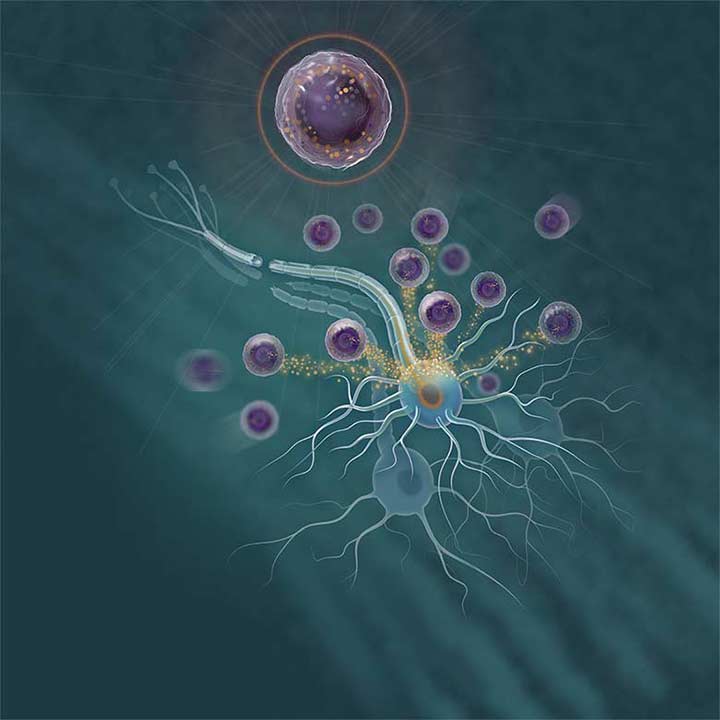
When surveyed, an estimated 165 million— 60.2%— of Americans reported using alcohol, tobacco and/or drugs in the last 30 days. Studies show that while men are more likely to use drugs and alcohol and have higher rates of usage, women are more susceptible to craving and relapse.
“Women are generally more vulnerable than males to the initiation, escalation and withdrawal effects of substance abuse,” says
Steve Oghumu, PhD (external link), assistant professor of Pathology at The Ohio State University College of Medicine. “This difference has largely been attributed to hormonal differences. However, the mechanisms underlying sex chromosome influences on substance abuse behavior represent a huge gap in our knowledge base on the epigenetics of substance use disorders.”
While several factors, including environment and mental health disorders, can lead a person from abuse to addiction, one of the leading factors is genetics—which can account for 40% to 60% of a person’s risk. Certain genes can impact the development of the rewards center in the brain, predisposing certain people to increased serotonin levels that cause the pleasurable effects of alcohol or drugs to be intensified.
Understanding how the X chromosome impacts the rewards center is the focus of Dr. Oghumu’s research. Recently, the National Institute on Drug Abuse awarded him a $2.3 million Director’s Pioneer Award (NDPA) to investigate the role of the epigenetic mechanism of X chromosome inactivation on sex differences in susceptibility to addiction. The NDPA supports individual scientists of exceptional creativity who propose highly innovative and broadly impactful research toward the ultimate goal of enhancing human health.
“We believe that escape from X-chromosome inactivation, or XCI, in females contributes to sex-associated differences in addiction behavior,” says Dr. Oghumu.
XCI is an epigenetic mechanism that occurs in mammalian females and serves to equalize gene expression between the sexes. Females have two X chromosomes (XX); during XCI, one X chromosome is randomly chosen to be transcriptionally silenced. However, it is known that a number of X-linked genes escape XCI and display biallelic gene expression.
Dr. Oghumu and his research collaborators in addiction, neuroscience, genetic mouse modeling, bioinformatics and biostatistics will determine the molecular landscape of XCI in brain tissue and specific neuronal cells during chronic exposure to opioids and psychostimulants, using a highly innovative single cell RNA sequencing technology. Then, they will use cutting-edge mouse models, developed in his lab, to characterize the gene expression of specific X-linked genes associated with addiction to opioids and psychostimulants.
“This innovative approach to the study and analysis of gene-specific XCI escape as an epigenetic mechanism in the context of substance abuse has the potential to open up a new area of research on the epigenetics of addiction,” says Dr. Oghumu. “Further, these genetically modified mice can be used to study XCI escape as an epigenetic mechanism in other neurologic disorders.”

 When surveyed, an estimated 165 million— 60.2%— of Americans reported using alcohol, tobacco and/or drugs in the last 30 days. Studies show that while men are more likely to use drugs and alcohol and have higher rates of usage, women are more susceptible to craving and relapse.
When surveyed, an estimated 165 million— 60.2%— of Americans reported using alcohol, tobacco and/or drugs in the last 30 days. Studies show that while men are more likely to use drugs and alcohol and have higher rates of usage, women are more susceptible to craving and relapse.